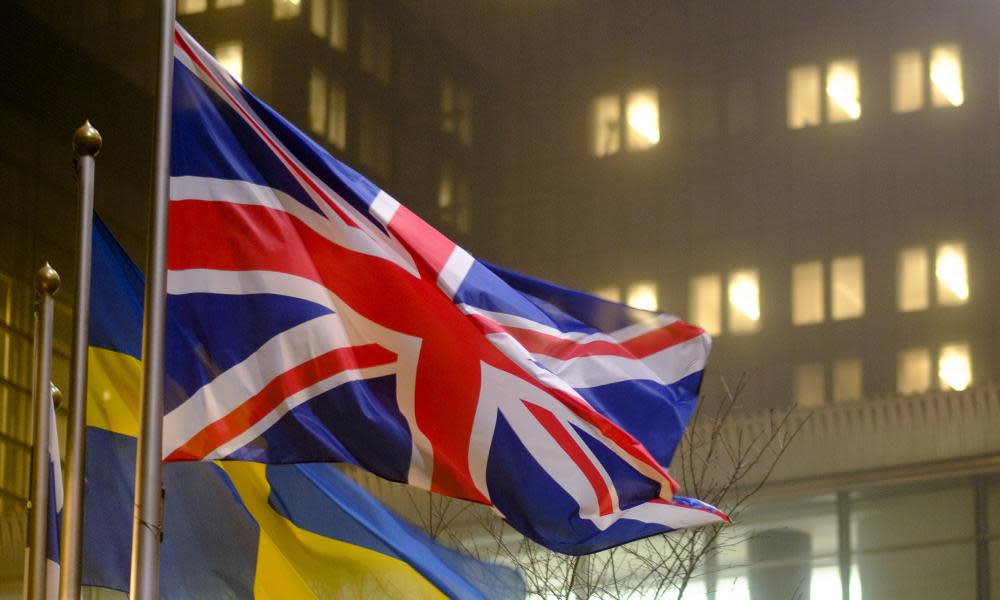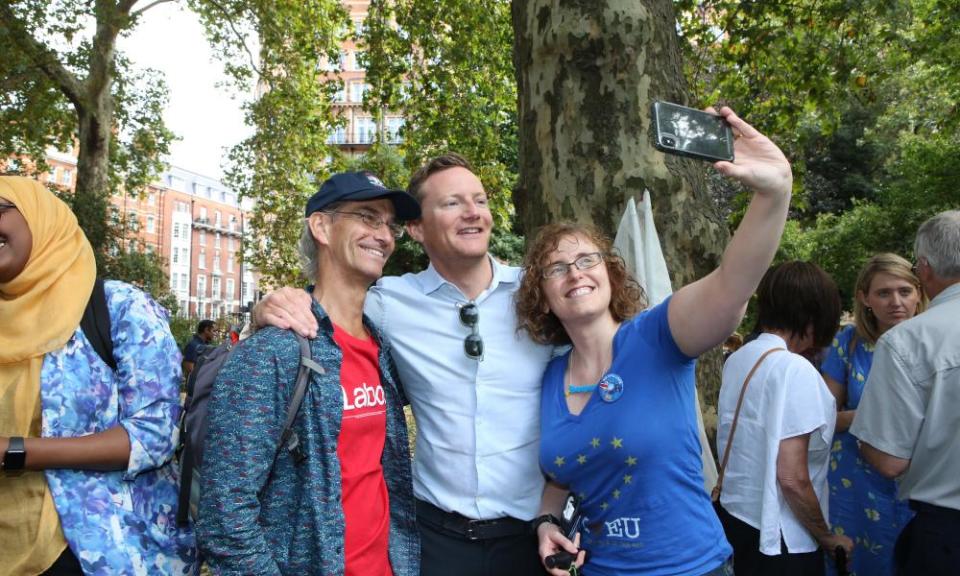Auf wiedersehen, arrivederci, adieu: UK MEPs face final week

They are clearing their desks, handing in passes and tweeting their final pictures as EU politicians: at the end of next week the UK’s 72 members of the European parliament will lose their jobs.
The country that has been represented in Brussels and Strasbourg by the likes of Barbara Castle, Stanley Johnson, Nick Clegg and Robert Kilroy-Silk will no longer have any MEPs after 31 January.
Even those who campaigned tirelessly for this day admit there are things they will miss. For the Brexit party MEP Nathan Gill, the job has become a way of life. “The travel is nice and you get to meet lots and lots of people and have experiences you would never normally have. So of course I will miss that.”
The Wales MEP, who ran the family care home business before going into politics, was inspired to join Ukip after seeing Nigel Farage on Question Time in 2004. A former Conservative party member, Gill had never “really thought there was a big issue with the EU” but wanted to keep the pound.
Farage was not like any other politician he had seen. “I realised at the very beginning that he got the zeitgeist of the British people.” After some internet research he signed up to the scrappy Eurosceptic party, enlisting friends and family. Although he failed to win a seat as councillor, he was elected in 2014 when Ukip stormed to the top of the polls, unleashing a political earthquake under David Cameron’s Conservatives.
Related: Britain's sitting MEPs on their long goodbye: ‘People say, “You’re still here!”’
Even then, Gill did not expect Britain would vote to leave less than two years later. “I’ve had a front-row seat to history and that is something I feel very privileged about.”
He hadn’t bargained on doing the job of an MEP, having been assured by Ukip, he tells the Guardian, that he could work from Wales, avoiding having to travel to Brussels and Strasbourg. That ploy collapsed when the party was lambasted for failing to attend meetings and votes.
“I got elected kind of on false pretences by the party. Because they said: ‘We’ve changed our mind; we need you to attend your committees, we need you to make sure you’re voting as much as possible, because we’ve got to change the image that the party has in the eyes of the public.’” For Gill, who has five children, one newborn at that time, it came as “a little bit of a shock”.
Re-elected in 2019 for the Brexit party, he is now ready to take a break from politics: “I need to rest. I have given everything to this cause.”
Colleagues on the other side of the Brexit divide are no less weary. Catherine Bearder, a Liberal Democrat MEP for South East England, says she is “physically and mentally exhausted” but “still angry” about what she calls the “stolen” referendum, where “the country was lied to”. Now 71, she is retiring, but will continue to campaign to protect nature, one of her priorities as a politician.
The Brexit result has left her and colleagues shattered. “It’s an emotional rollercoaster. Not just me, but there are thousands of Brits [working in the EU] and our staff. For staff, who are going to lose their jobs, it’s going to be tough.”
She will miss friends she has made in 11 years as an MEP, where she has worked to strengthen EU efforts to protect biodiversity and clamp down on human trafficking. Traversing the long corridors of Brussels and Strasbourg it’s easy to bump into people. “When I first arrived, it’s like going to a new school – you don’t know anybody. And now just walking through the buildings of Brussels … you just see so many friends and that is always a pleasure. And I will miss that.”
The feeling is mutual. “I think the European parliament will get more boring without the Brits,” says one MEP from a northern member state. “In our group it was always the Brits that organised the Christmas dinner.”
Philippe Lamberts, who sits on the Brexit steering group, says he will miss British pragmatism and scepticism of big schemes, the “Anglo-Saxon attitude: this thing has to work”. The Belgian Green MEP, who triumphed over George Osborne on EU plans to rein in bankers’ bonuses, said the British government was an ally in cleaning up the financial system after the crisis: “Oftentimes I was fighting shoulder to shoulder with the British government against Paris and Berlin.”

The perceived power of France and Germany unsettled Geoffrey Van Orden. The former brigadier, who has been a British Conservative MEP for two decades, has been a staunch opponent of EU defence and security cooperation which he sees as “essentially a bureaucratic project guided by the Élysée and Berlin”.
Being an MEP, he says, has enabled him to promote Britain in the world, defend British farmers and help constituents in trouble, such as British planespotters accused of being spies by the Greek authorities in 2001. “All those sorts of things have been challenging, very satisfying, and it has been a great privilege to have been an MEP.”
A self-described “reluctant remainer”, he was the last Conservative MEP to make up his mind in 2016. Leaving is “a bit of a wrench personally. Although I’ve had no great affection for the European Union, I’ve enjoyed enormously what I do.”
The Labour MEP Seb Dance is even more emphatic. “This is the best job in British politics. You get to actually influence things and work with people from around Europe with different experiences.”
Related: Brexit: no union jack-lowering ceremony in European parliament
The London MEP jokes that he may even miss the monthly schlep to Strasbourg, as his 66th trip to the pretty French city draws to a close. “What on earth am I going to moan about incessantly now?” The European parliament’s ecologically costly two parliaments policy – protected by the French presidential veto – is the only thing that unites British MEPs in complaint.
This week, Dance served his last stint as vice-chairman of the parliament’s environment committee. Next Wednesday he is invited to a ceremony led by the European parliament president to say farewell to the British MEPs. On Friday 31 January, he will return the keys to his Brussels flat and hand in his MEP badge.
Sitting in the airy atrium cafe in the Strasbourg parliament, he hopes he will be back in a different role. “I don’t see the point of despairing because there is a whole world out there and if Britain wants to commit economic hara-kiri that’s up to it. But the world moves on … The interesting stuff will still happen here. And that is quite exciting.
“Good luck, Britain. We will see where we end up.”

 Yahoo News
Yahoo News 
